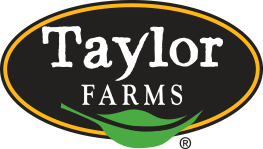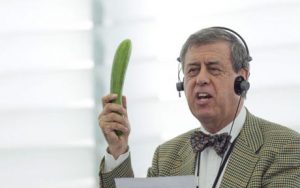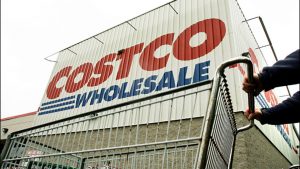Taylor Farms supplies celery and onion mixtures to a lot of retail and food service operations. And they are recalling it, according FDA, after Costco and Montana health officials linked the ingredients to it’s chicken salad/E. coli outbreak.
Taylor Farms Pacific, Inc. of Tracy, CA, is recalling the products listed below because they may include celery which could potentially contain E. coli 0157:H7. The products listed below are being recalled out of an abundance of caution due to a Celery and Onion Diced Blend testing positive for E. coli O157:H7 in a sample taken by the Montana Department of Health. The Celery and Onion Diced Blend tested by the state of Montana was used in a Costco Rotisserie Chicken Salad that has been linked to a multi-state E. coli O157:H7 outbreak.
Liz Szabo of USA Today called me yesterday between a pre-Thanksgiving gym trip and turkey preparation to talk about the Costco-linked outbreak.
The E. coli outbreak traced to Costco chicken salads appears to have been caused by vegetables in the salad, rather than the chicken itself, according to company officials.
Tests performed by the Food and Drug Administration and Montana health officials traced the E. coli to an onion and celery mix, rather than the rotisserie chicken itself, Craig Wilson, Costco’s vice president of food safety and quality assurance, told USA TODAY. Health officials are performing additional tests to confirm this link.
The specific type of bacteria in this outbreak, E coli O157, is particularly dangerous, especially for children, said Ben Chapman, an associate professor and food safety specialist at North Carolina State University. E. coli 0157 is more likely than other varieties of the bacteria to cause hemolytic uremic syndrome, which can leave survivors on dialysis, he said.
One in 6 Americans — more than 48 million people — are sickened by the food they eat each year in the country, causing about 3,000 deaths and 125,000 hospitalizations, costing the economy $14.1 billion, according to the CDC.
More than half of food poisoning outbreaks are related to fruits and vegetables, Chapman said. Fresh produce is particularly vulnerable to contaminants, simply because it’s not cooked.
“When it comes to produce, there is no zero risk,” Chapman said (true with all foods -ben). “There are just so many points where it can be contaminated, between the field and someone’s plate.”
E. coli can get into the food chain in a variety of ways. Outbreaks have been linked to animal manure left behind by deer and even wild pigs, Chapman said.
Both Costco and Taylor Farms have good reputations for food safety, said William Marler, a Seattle attorney who has represented victims of food-borne illness and whose law firm operates a data base of food poisoning outbreaks.
“Costco has always done a good job with food safety,” Marler said. “They are probably one of the better stores out there, which shows just how vulnerable a supply chain is to E. coli or salmonella. Even if you have the best food safety systems in place, it always requires constant monitoring and oversight.”
But outbreaks can happen even at careful companies. “With mass-produced food, the opportunity for problems is really high,” Marler said.
And with not massed-produced foods too.
 Cucumbers have been linked to at least 45 Salmonella illnesses in western Canada.
Cucumbers have been linked to at least 45 Salmonella illnesses in western Canada.








